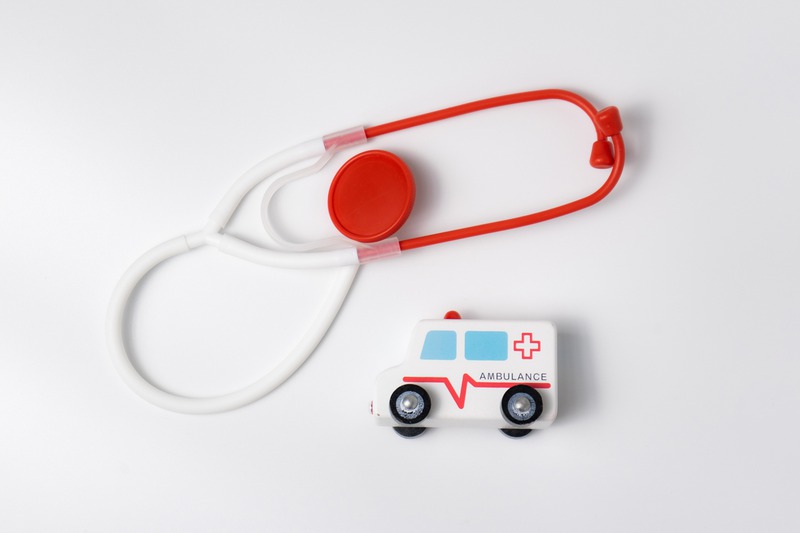How Can Urgent Care Save You Time And Money?

In today’s fast-paced world, managing healthcare needs can be a daunting task, especially when unexpected illnesses or injuries occur. The dilemma of choosing between costly emergency room visits and the long wait times for a doctor’s appointment is all too familiar. Urgent care centers have emerged as a practical solution, offering timely and affordable care for non-life-threatening medical situations. This article delves into how urgent care facilities can help save both time and money while ensuring quality healthcare.
Advantages of Urgent Care
Urgent care centers serve as a bridge between the emergency room and traditional doctor’s offices, offering services that cater to immediate medical needs without the hefty costs and extended waiting periods. Here are some advantages:
-
Cost-Efficient: Urgent care facilities generally charge much less than emergency rooms.
-
Reduced Wait Times: Patients are usually seen within an hour, unlike the potential for hours of waiting in emergency rooms.
-
Extended Operating Hours: Many centers are open evenings and weekends, providing access when most doctor’s offices are closed.
-
No Appointments Necessary: Walk-ins are welcome, which adds convenience and flexibility.
-
Comprehensive Range of Services: From X-rays to lab tests, many centers can handle a variety of non-emergency issues.
Cost Savings Compared to Emergency Rooms
The financial implications of choosing an urgent care center over an emergency room are significant. Emergency room visits can lead to unexpectedly high costs due to the level of care and resources required. In contrast, urgent care facilities offer a more budget-friendly option for minor injuries and illnesses.
-
An emergency room visit can range from several hundred to several thousand dollars.
-
Urgent care visits typically cost a fraction of that amount.
-
Many urgent care centers accept insurance, reducing out-of-pocket expenses further.
For individuals or families without comprehensive insurance coverage, or those on high-deductible health plans, urgent care becomes an economically sound choice for managing health effectively.
Accessibility and Convenience
One of the core strengths of urgent care centers is their accessibility and convenience. Operating hours that extend beyond those of regular clinics mean that medical help is available when it’s most needed. This flexibility extends to locations as well, with many centers conveniently situated in urban and suburban areas.
An urgent care facility like Access Total Care exemplifies the comprehensive services available. Centers often allow patients to check in online, significantly reducing the time spent in waiting rooms. This online reservation system enhances the patient experience by minimizing disruptions to daily schedules.
Broad Spectrum of Services
Urgent care is not limited to treating only a narrow band of medical complaints. They provide a broad range of services, which ensures that most minor medical needs can be addressed in a single visit. Common services include:
-
Diagnosis and treatment of illnesses, such as flu, infections, and colds
-
Minor injury treatment, including sprains, cuts, and burns
-
Basic lab tests, like urine tests and blood work
-
Imaging services, like X-rays
-
Preventative care, such as vaccinations and check-ups
This comprehensive approach eliminates the need for multiple appointments, allowing for a more streamlined healthcare experience.
Identifying Appropriate Situations for Urgent Care
While urgent care offers numerous advantages, knowing when to use these facilities is crucial. Urgent care is best suited for non-life-threatening conditions, providing care for health issues that can’t wait for a doctor’s appointment but don’t require a trip to the emergency room.
For severe symptoms like chest pain, significant trauma, or difficulty breathing, it’s important to visit an emergency room instead or call emergency services. Common conditions treated at urgent care centers include:
-
Fever, cough, and sore throat
-
Minor cuts and lacerations requiring stitches
-
Sprains and fractures
-
Allergic reactions and asthma flare-ups
Understanding these distinctions can ensure that individuals receive the correct level of care when needed.
Selecting and Preparing for Urgent Care Visits
Choosing the right urgent care facility involves more than just proximity. Patients should also consider the range of services offered, hours of operation, and whether the center accepts their insurance plan. Checking online reviews can provide insights into the center’s reputation and quality of care. For instance, if searching for urgent care Schertz, one can find centers that offer a wide array of services tailored to local community needs.
Before your visit:
-
Bring a valid photo ID and insurance card for verification.
-
Prepare a list of all medications and known allergies.
-
Know the details of your medical history.
-
Check if the center accepts your insurance plan.
These preparatory steps allow for an efficient visit, ensuring that your medical concerns are the focus.
When Urgent Care Isn’t Suitable
It’s essential to recognize that while urgent care centers offer a broad range of services, they aren’t equipped to handle medical emergencies. Understanding when not to use urgent care can help direct patients to the appropriate care facilities.
-
Severe chest pain indicating a heart attack
-
Difficulty breathing or shortness of breath
-
Uncontrolled bleeding or severe cuts
-
High fever with a rash
-
Sudden or severe pain in any area of the body
For these serious conditions, it’s better to call emergency services or visit an emergency department directly, where the necessary resources and expertise are available. Directions to the right facility can be essential during these critical times. In urban settings, finding this location here can provide peace of mind in an emergency situation.
Closing Remarks
Urgent care centers offer a crucial alternative for those navigating the complexities of modern healthcare. By providing a cost-effective and time-saving solution for non-emergency medical issues, they fill an essential gap in healthcare services. Understanding when to choose urgent care can lead to significant savings in both time and money while ensuring quality care. Next time a non-life-threatening health issue arises, consider visiting an urgent care center to address your medical needs efficiently.



